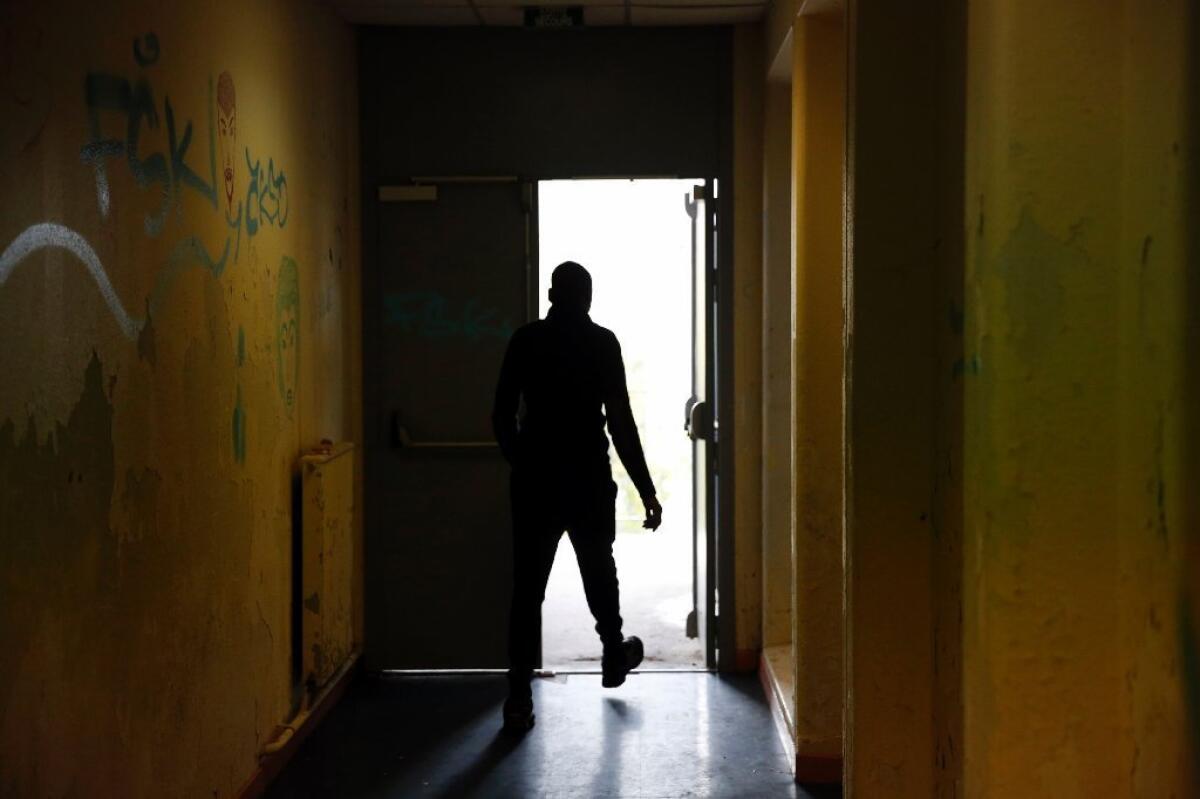Loneliness: The new (old) smoking?

Social isolation or loneliness isn’t just a state of mind. A new study finds it is linked to increased heart and stroke risk.
- Share via
The scourge of loneliness has been with us since time immemorial, but only in recent years has its toll on human health gained appreciation. New research shows that feeling lonely or socially isolated bumps up a person’s average risk for coronary heart disease and stroke -- two of the developed world’s most prolific killers -- by 50%.
As a risk factor for heart attack, clogged arteries or stroke, those statistics put loneliness on a par with light smoking, anxiety and occupational stress. And they make social isolation a more powerful predictor of such vascular diseases than are either high blood pressure or obesity.
Moreover, the study found, the toxic effects of loneliness strike men and women equally, researchers found.
See the most-read stories in Science this hour >>
Added to research linking loneliness to higher rates of cognitive decline and poor immune system function, loneliness begins to look like a blight not just on society but on our collective well-being.
The new research, published Tuesday in the British Medical Journal’s publication, Heart, aggregated the findings of 23 separate studies that asked people to characterize their level of social engagement. Each of those studies then tracked participants for periods ranging from 3 to 21 years and noted whether they had a first stroke or were newly diagnosed with, or died from, coronary heart disease.
All told, the studies suggest that people who suffer from loneliness or social isolation were 29% more likely than those who are not to develop coronary heart disease--suffering either a heart attack or requiring medical intervention to clear blocked arteries. And they were 32% more likely than the socially engaged to have a stroke.
Loneliness and social isolation were variously defined in the studies, which were conducted in Europe, the United States, Japan and Australia. But most asked subjects about the extent of their social networks or supports, the frequency of their social contacts, the quality of their social relationships, and their feelings of loneliness. Across the 23 studies, anywhere from 2.8% to 77.2% of study participants were declared lonely or socially isolated.
Lonely people take many paths to reach their isolated state. Some have mobility problems, depression or physical or mental illness which keep them from getting out--or up--to develop and maintain friendships. Some have outlived their spouses or siblings or have left--or been left behind by--friends or relatives in a transient society. Others were surrounded by people but state they nevertheless felt lonely or unsupported.
The problem is that people who fit all those descriptions tend to engage in fewer healthy behaviors such as exercise, visiting a doctor, and following his or her recommendations. And they’re more likely to engage in unhealthy behaviors such as smoking, drinking alcohol to excess and eating too much or too little.
As a result, it’s hard to know whether loneliness is a contributor to, the result of, or just another symptom of poor health. And for the same reason, it’s hard to know whether programs aimed at getting the socially isolated to re-engage will improve their health, and how.
What is clear is that physicians, who expend enormous energy trying to reduce their patients’ risks for heart disease and stroke, can ask those same patients about feelings of loneliness and the health of their friend- and family-networks, wrote psychologists Julianne Holt-Lundstad and Timothy B. Smith, both of Brigham Young University in Provo, Utah. Where they’re deficient or strained, physicians can refer patients to mental health programs that may help or counsel their patients to volunteer, join a club, sign up for classes or reconnect with friends.
“Given projected increases in levels of social isolation and loneliness in Europe and North America, medical science needs to squarely address the ramifications for physical health,” Lundstad and Smith wrote in an editorial published in Heart. Among other issues, researchers should explore the role of technology and social media in enhancing--or eroding--social engagement, they added.
And while professional help may ease the pain of loneliness, there may be nothing like the ties of family and friendships--in their cost, their depth and their effectiveness, added Smith and Holt-Lunstad. So preventing their unraveling is important as well.
“Efforts to strengthen existing family relationships may prove more effective than interventions by hired personnel,” wrote Holt-Lundstad and Smith.
Follow me on Twitter @LATMelissaHealy and “like” Los Angeles Times Science & Health on Facebook.
MORE FROM SCIENCE
How your DNA influences your sex life
Dinosaurs were in decline long before the Chicxulub asteroid finished them off
Could mysterious gamma-ray burst be linked to gravitational wave find?







